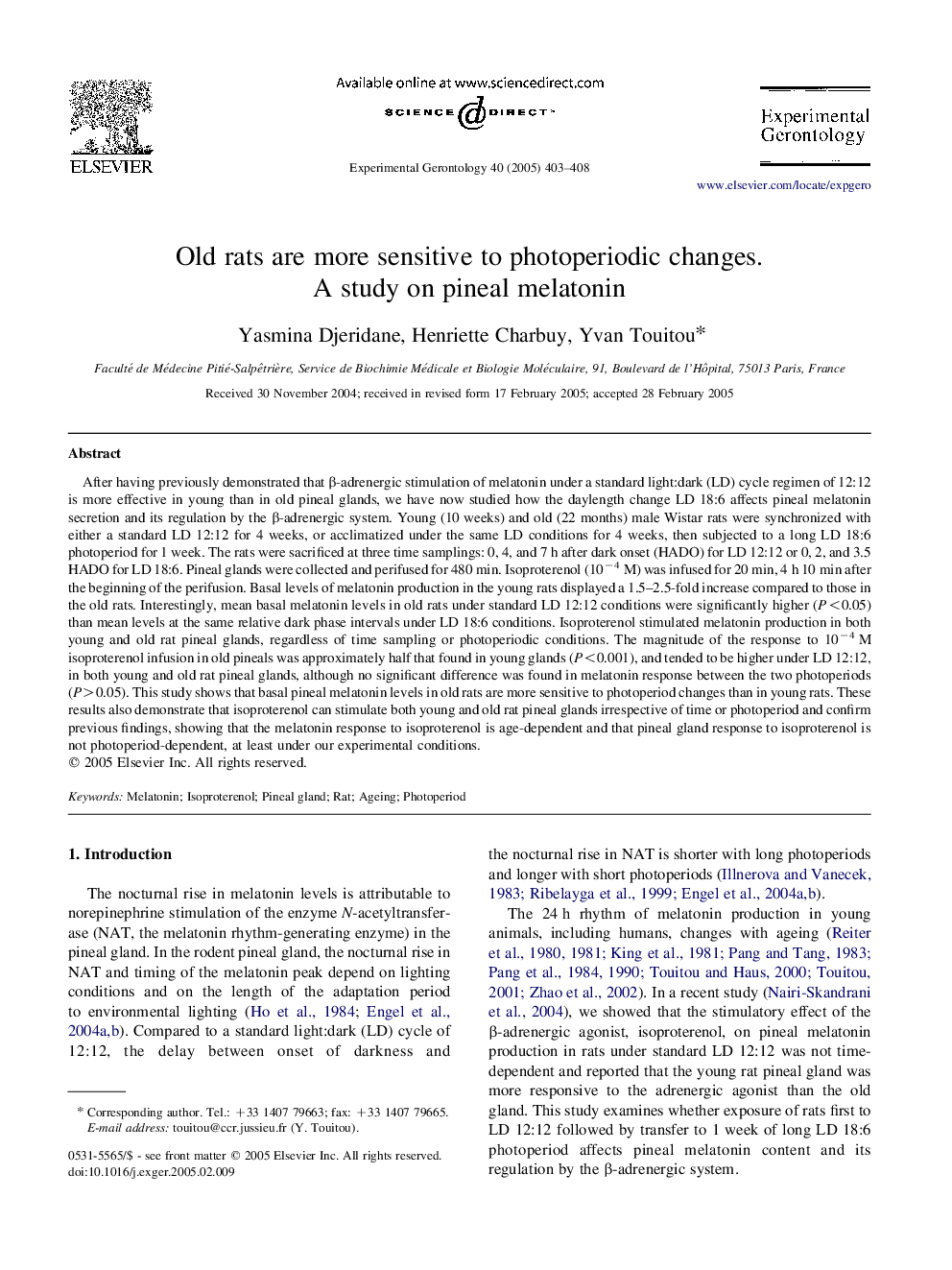| Article ID | Journal | Published Year | Pages | File Type |
|---|---|---|---|---|
| 10737282 | Experimental Gerontology | 2005 | 6 Pages |
Abstract
After having previously demonstrated that β-adrenergic stimulation of melatonin under a standard light:dark (LD) cycle regimen of 12:12 is more effective in young than in old pineal glands, we have now studied how the daylength change LD 18:6 affects pineal melatonin secretion and its regulation by the β-adrenergic system. Young (10 weeks) and old (22 months) male Wistar rats were synchronized with either a standard LD 12:12 for 4 weeks, or acclimatized under the same LD conditions for 4 weeks, then subjected to a long LD 18:6 photoperiod for 1 week. The rats were sacrificed at three time samplings: 0, 4, and 7 h after dark onset (HADO) for LD 12:12 or 0, 2, and 3.5 HADO for LD 18:6. Pineal glands were collected and perifused for 480 min. Isoproterenol (10â4 M) was infused for 20 min, 4 h 10 min after the beginning of the perifusion. Basal levels of melatonin production in the young rats displayed a 1.5-2.5-fold increase compared to those in the old rats. Interestingly, mean basal melatonin levels in old rats under standard LD 12:12 conditions were significantly higher (P<0.05) than mean levels at the same relative dark phase intervals under LD 18:6 conditions. Isoproterenol stimulated melatonin production in both young and old rat pineal glands, regardless of time sampling or photoperiodic conditions. The magnitude of the response to 10â4 M isoproterenol infusion in old pineals was approximately half that found in young glands (P<0.001), and tended to be higher under LD 12:12, in both young and old rat pineal glands, although no significant difference was found in melatonin response between the two photoperiods (P>0.05). This study shows that basal pineal melatonin levels in old rats are more sensitive to photoperiod changes than in young rats. These results also demonstrate that isoproterenol can stimulate both young and old rat pineal glands irrespective of time or photoperiod and confirm previous findings, showing that the melatonin response to isoproterenol is age-dependent and that pineal gland response to isoproterenol is not photoperiod-dependent, at least under our experimental conditions.
Related Topics
Life Sciences
Biochemistry, Genetics and Molecular Biology
Ageing
Authors
Yasmina Djeridane, Henriette Charbuy, Yvan Touitou,
